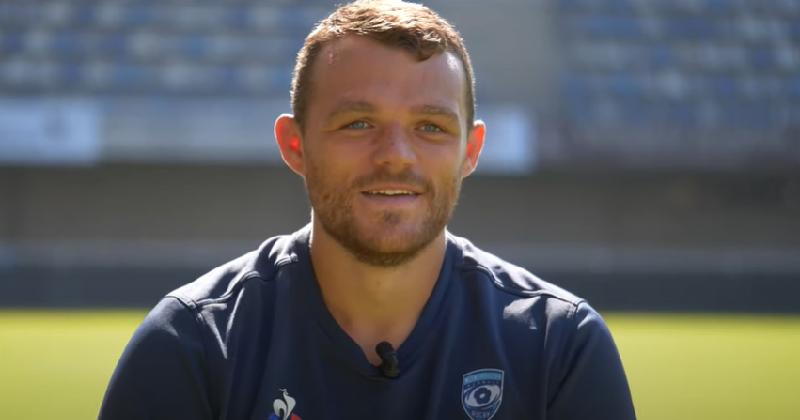After more than six decades of making bikes fly, swimmers terrified to shore and other fascinating close encounters ensue, John Williams he writes the final notes of what could be his last soundtrack.
“Right now I’m working on ‘Indiana Jones 5’, which I think Harrison Ford, who is quite a bit younger than me, announced will be his last film”Williams says. “So I thought, if Harrison can do it, then maybe I can too.”
Ford, for the record, has not said that publicly. And Williams, who turned 90 in February, isn’t exactly sure he’s ready to retire, either.
“I don’t want to be seen categorically eliminating any activity”Williams says with a laugh in a phone interview from her home in Los Angeles. “I can’t play tennis, but I like being able to believe that maybe one day I will.”
Right now, though, there are other ways Williams wants to spend his time. A “Star Wars” movie requires six months of work, which, he says, “at this point in life is a long commitment for me.” Instead, he devotes himself to composing concert music, including one for piano that he writes for Emmanuel Ax.
Musical work with Yo-Yo Ma
Last month, Williams and the cellist Yo-Yo Ma they released the album “A Gathering of Friends”, recorded with the New York Philharmonic, Spanish guitarist Pablo Sáinz-Villegas and Chinese harpist Jessica Zhou. It is a radiant collection of cello concertos and new arrangements of the scores of “Schindler’s List”, “Lincoln” and “Munich”, including the sublime “A Prayer for Peace”.
Turning 90, a milestone that the Kennedy Center and Tanglewood Festival celebrate this summer with birthday concerts, has caused Williams to reflect on his accomplishments, his remaining ambitions and what a lifetime of music has meant to him.
“It has given me the ability to breathe, the ability to live and understand that there is more than bodily life”Williams says. “Without being religious, which I am not in particular, there is a spiritual life, an artistic life, a kingdom that is above the mundanity of everyday realities. Music can raise our thinking to the level of poetry. We can reflect on how necessary music has been for humanity. I always like to speculate that music is older than language, that we were probably beating drums and blowing reeds before we could speak. So it’s an essential part of our humanity.”
“He has given me my life,” he says.
And, in turn, Williams has provided the soundtrack to the lives of countless people through more than 100 films, including “Star Wars”, “Jurassic Park”, “Jaws”, “Close Encounters of the Third Kind”, “E.T.”, “Indiana Jones”, “Superman”, “Schindler’s List” y “Harry Potter”.
“He has lived for the best part of a century, and his music encompasses all the events and changes of those times,” says Ma, an old friend of Williams. “He is one of the great American voices.”
And his achievements are hard to quantify. Five Oscars and 52 Academy Award nominations, a number second only to Walt Disney, is a measure. But that falls short of reflecting the cultural power of his music. Millions of people could instantly hum Williams’ two-note ostinato from “Jaws” or “The Imperial March” from “Star Wars.”
“I have been told that music is played all over the world. What could be more rewarding than that?” says Williams. “But I have to say it looks unreal. I can only see what’s in front of me on the piano right now, and do the best I can with it.”.
Williams has a warm, humble and courteous demeanor despite his size. He started an interview by saying: “Let me see if I can give you something that might be useful.”. He believes that all those indelible and perfectly constructed themes are not so much the product of divine inspiration, but of daily hard work. She does most of hers sitting for hours in front of his Steinway, composing in pencil.
“It’s like cutting a stone on your desk”dice. “My younger colleagues are much faster than me because they have electronic equipment, computers, synthesizers and so on”.
When Williams started (his first feature film score was 1958’s “Daddy-O”), the film tradition of great orchestral scores was beginning to lose ground to pop soundtracks. Now, many gravitate towards synthesized music for movies. Increasingly, Williams has the aura of a revered old master bridging distant eras of film and music.
“Recording with the New York Philharmonic, the entire orchestra was impressed by this 90-year-old gentleman who listens to everything, is unfailingly kind, gentle and polite. People just wanted to play for him.”says Ma. “They were blown away by the musicianship of this man.”
New chapter in his career
This chapter in Williams’ career is, in a way, an opportunity to place his gigantic legacy not only in relation to the cinema, but also among classic legends. Williams, who led the Boston Pops from 1980 to 1993, has conducted the Berlin, Vienna and New York Philharmonics, among others. In the world’s elite orchestras, his compositions have become part of the canon.
“A purist can say that the music represented in the cinema is not absolute music. Well, that may be true.”Williams says. “But some of the best music ever written has been narrative. Certainly at the opera. The cinema offers that opportunity, not often, but occasionally it does. And in a musically rewarding way. Every once in a while we get lucky and find one.”
Collaborations with Spielberg
Williams’ long-standing partnership with Steven Spielbergof course, helped launch the composer’s career. Spielberg, who invited Williams to lunch in 1972 after being captivated by his score for “The Reivers,” has called him “the most significant contributor to my success as a filmmaker.”
“Without John Williams, bikes don’t really fly,” Spielberg said when the American Film Institute (AFI) honored Williams in 2016, referencing an iconic scene from “ET.”
Both remain irrevocably linked. Their offices on the Universal lot are just steps away from each other. Along with “Indiana Jones,” Williams recently scored Spielberg’s upcoming semi-autobiographical drama “The Fabelmans.” With those two movies, that’s 30 together for Spielberg and Williams.
“50 years have already passed. Maybe we’re starting the next 50″Williams says between laughs. “Whatever our connections, whether it’s music, working with him or just being with him, I think we’ll always be together. We are great friends who have shared many years together. It’s the kind of relationship where neither of us would say no to the other.”
In Spielberg’s movies and others, Williams has created enough perfectly condensed melodies to rival the Beatles. Spielberg once described his five-note “Communication Motif” in “Close Encounters” as “a doorbell.”
“Small, simple topics that speak clearly and without confusion are very difficult to find and very difficult to create,” Williams says. “They really are the result of a lot of work. It’s almost like chiseling. Move a note, change a rhythmic emphasis, change the direction of an interval, and more. A simple melody can be made in dozens of ways. If you find one, it looks like you discovered something that wanted to be discovered.”
great legacy
One thing you won’t hear from Williams is a big statement about his own legacy. He is much more comfortable speaking as a technician who plays until he gets a shiny gem.
“My own personality is such that I look at what I’ve done, I’m quite pleased and proud of a lot of it, but like most of us, we always wish we had done better.”, He says. “We live with examples like Beethoven and Bach before us, monumental achievements that people have achieved in music, and we can feel very honored. But I also feel very lucky. I’ve had wonderful opportunities, particularly in film, where a composer can have an audience of not millions of people, but billions.”
Williams has several concerts scheduled for the rest of the year, including appearances in Los Angeles, Singapore and Lisbon. But while he may be moving away from cinema, he remains enthralled with cinema and the ability of sound and image, when combined, to take off.
“I would love to be around 100 years from now to see what people are doing with film, sound and spatial, auditory and visual effects. I think he has a tremendous future.”Williams says. “I can feel a great possibility and a great future in the atmosphere of the whole experience. I would love to go back and see and hear it all.”
–
:format(jpeg):focal(2385x785:2395x775)/cloudfront-us-east-1.images.arcpublishing.com/gfrmedia/LPIGT2AKZVAENJICM47JEO3HLM.jpg)

